|
|
|
|
Spring 2015 | Issue #4
In Focus: the Faculty of Arts & Science Newsletter
Thursday, January 15, 2015
|
|
|
From the Dean
|
 |
| |
Liberal Education in the 21st Century and the Yale report of 1828: What goes around, comes around
Happy New Year. I thought I would open our discussion this year with some thoughts on Liberal Education in light of the changing landscape in the province. In an earlier column, I promised to talk about the Yale Report. Part of what I provide below came out of a talk, which I gave to the Rotary Club over a year ago. I begin with the same question, which I began then: What is the purpose of a university education?
In the Protagoras
Socrates enquires of the sophist what his student Hippocrates could achieve if he attended his classes. To which Protagoras responded “the proper care of his personal affairs, so that he may best manage his household, and also the state’s affairs, so as to become a real power in the city, both as speaker and man of action” (Plato, Protagoras 319 A). For a sophist, like Protagoras, higher education had practical value: his student would succeed economically and politically. A little earlier in the dialogue Protagoras claimed his student would go away a “better person”, but Socrates suspected that Protagoras did not mean morally or ethically, and so pressed him on the issue until he responded as he did. The debate on the value of higher education has always, it seems, been framed around these two, supposedly, contradictory purposes.
Governments, for instance, see the value of higher education almost exclusively in terms of innovation and creating a skilled workforce; after all this is the Information Age, where a premium is placed on knowledge acquisition as the path to prosperity. This is the “speak” in every jurisdiction, of which Alberta is no exception. Listen to some comments from the executive summary of a recent report by the Committee for Economic Development (CED), entitled “Boosting California’s Postsecondary Education Performance”:
-
California’s colleges and universities, long the envy of the world, no longer produce all of the graduates with the necessary postsecondary education to ensure both our state’s prosperities for individuals in the 21st century.
-
Meeting California’s current and future needs for higher education opportunity and for economic competitiveness requires postsecondary institutions improve their success rates with current students and attract and graduate individuals who have traditionally been under-represented.
-
Without quantum increases in educational access, productivity and effectiveness of the state’s postsecondary institutions, particularly those with broad-access missions, there is little likelihood that California will have the human capital to compete successfully in a global economy and assure its citizens access to economic prosperity and middle-class life.
In light of these comments, I would ask: are universities meant exclusively to be drivers of innovation, the engines of economic prosperity? Do they exist simply to provide training for employment and to guarantee a middle-class livelihood, even though the evidence indicates that higher education, in whatever form it takes at university, leads to higher earnings for the individual? But is that really what University is all about? The nomenclature used by governments would seems to suggest this: after all, the PSE system in Alberta resides under the Ministry of Innovation and Advanced Education, as if the one is dependent on the other; as if advanced education should only be understood in terms of innovation, or at the very least must go hand-in-hand with it. I don’t asked these questions rhetorically, as if I do not value innovation or believe universities have an important role
to play in this respect, but to remind ourselves that governments, who often provide funding targeted at innovation, tend to have short horizons, two to three years at most, whereas universities, out of necessity, must think in terms of decades. In many cases innovation is incremental and slow in coming. So for instance, research into Stem Cells, the discovery of which was made some 50 some years ago, is only beginning to bear fruit. I leave it to Philosophy to debate the ethics. In privileging innovation and economic prosperity over other values, do we forget the importance of basic research, which is not necessarily or always premised on innovation, and in all this talk of universities as drivers of innovation and the key to economic prosperity, is there still a place for Liberal Education as it is traditionally conceived and expressed at the University of Lethbridge, which claims to
be founded on the principles of Liberal Education?
Liberal Education, a Definition.
Liberal Education has been described by the Association of American Colleges and Universities as "a philosophy of education that empowers individuals with broad knowledge and transferable skills, and a stronger sense of values, ethics, and civic engagement ... characterized by challenging encounters with important issues, and more a way of studying than a specific course or field of study".
To the question, what is a 21st Century Liberal Education, the Association of American Colleges and Universities provides this answer:
Liberal Education is an approach to learning that empowers individuals and prepares them to deal with complexity, diversity, and change. It provides students with broad knowledge of the wider world (e.g. science, culture, and society) as well as in-depth study in a specific area of interest. A liberal education helps students develop a sense of social responsibility, as well as strong and transferable intellectual and practical skills such as communication, analytical and problem-solving skills, and a demonstrated ability to apply knowledge and skills in real-world settings.
A similar definition can be found on our website.
Liberal education emphasizes rationality, careful skepticism, asking questions and making informed decisions. It aims to foster good citizenship by cultivating important values such as toleration, equality and civic engagement. A liberal education is one that challenges, enlarges and liberates the mind through the careful and critical examination of ideas. It emphasizes mastery of thought and communication, so that liberally educated individuals can contribute through their life and work to the good of our collective communities, on all scales from the local to the global.
With these definitions in mind, let us consider whether there is still a place for Liberal Education or has its time long passed? Is there still a place for Philosophy to ask the big questions: what is the good life; or a place to acquire dead languages, whether Sanskrit or Ancient Greek, to allow one to look deeply into the distant past. And in the face of a drive for mere credentials, which seems to be an overriding concern both of governments and citizens alike, as the key to success and prosperity, is there still time and place for the simple pleasure of exploring ideas, unlocking the mysteries of the universe, broadening our thinking, or are these simply irrelevant pastimes? These questions have long been asked and debated; they seem to get asked by each generation, as universities come under pressure to justify themselves in the face of economic change.
To illustrate my point, I thought, I would reference the Yale Report of 1828, which has been described as the one of the most influential documents in the history of American Higher Education. The report was in part prompted by a debate on whether to change the traditional curriculum, the teaching of Classical languages, Greek and Latin, which I thought was appropriate given I am a Classicist and have often argued for the value of studying dead languages, if only to say “I can read Plato in the original” and have one up on the Philosophers.
The striking thing, when you read the Yale Report, is that little seems to have changed: the same challenges and concerns are voiced today as they were back then; the same criticism is directed at universities that they are out of touch with current realities. I provide a few excerpts from the Yale Report; the full report can be found here.
Yale Report of 1828
We are decidedly of the opinion that our present plan of education admits of improvement. We are aware that the system is imperfect: and we cherish the hope, that some of its defects may ere long be remedied. We believe that changes may, from time to time be made with advantage, to meet the varying demands of the community, to accommodate the course of instruction to the rapid advance of the country, in population, refinement, and opulence.
...
The guardians of the college appear to have ever acted upon the principle that it ought not to be stationary, but continually advancing. Some alteration has accordingly been proposed, almost every year, from its first establishment. It is with no small surprise, therefore, we occasionally hear the suggestion that our system is unalterable; that colleges [read universities] were originally planned, in the days of monkish ignorance; and that, “by being immovably moored to the same station, they serve only to measure the rapid current of improvement which is passing by them.”
...
But perhaps the time has come, when we ought to pause, and inquire, whether it will be sufficient to make gradual changes, as heretofore; and whether the whole system is not rather to be broken up, and a better one substituted in its stead. From different quarters, we have heard the suggestion, that our colleges must be new-modelled; that they are not adapted to the spirit and wants of the age; that they will soon be deserted, unless they are better accommodated to the business character of the nation. As this point may have an important bearing upon the question immediately before the committee, we would ask their indulgence, while we attempt to explain, at some length, the nature and object of the present plan of education at the college.
...
What then is the appropriate object of a college? It is not necessary here to determine what it is which, in every case, entitles an institution to the name of a college. But if we have not greatly misapprehended the design of the patrons and guardians of this college, its object is to lay the foundation of a superior education: ... The ground work of a thorough education must be broad, and deep, and solid. For a partial or superficial education, the support may be of looser materials, and more hastily laid.
The two great points to be gained in intellectual culture, are the discipline and the furniture of the mind; expanding its powers, and storing it with knowledge … The habits of thinking are to be formed, by long continued and close application. The mines of science must be penetrated far below the surface, before they will disclose their treasures. If a dexterous performance of the manual operations, in many of the mechanical arts, requires an apprenticeship, with diligent attention for years; much more does the training of the powers of the mind demand vigorous, and steady, and systematic effort.
The Yale Report has often been regarded as reactionary document that set back educational reform by some 50 years both at Yale and other institutions like Harvard. “[T]he report was in part a disquisition on the meaning and nature of Liberal Education”, and should be understood against the backdrop of rapid economic change and transformation (Lane 1987: 326), against what the report itself calls “the business character of the nation”, and against the backdrop of stirrings for educational reforms at Harvard and elsewhere, and against the progressive curriculum of Jefferson’s University of Virginia, which aimed to prepare students for commercial society (Carnochan 2002: 9). All this sounds hauntingly familiar.
Reformers like George Ticknor of Harvard and James Marsh of the University of Vermont, were seeking reforms that would address the changing times; open up colleges to larger segments of society; create distinct departments of knowledge and replace the traditional pedagogical method of instruction based on recitation and prescribed classical texts with that of the lecture, discussion and inquiry (Lane 1987: 330-31; Pak 2008: 30-31).
Today the current, predominate pedagogical method of instruction at universities, the lecture, discussion and inquiry, is being challenged, supplemented and even supplanted by online and blended models of learning. How do we respond to this? Should we, like Yale, incorporate both methods of pedagogy? The apprehension about change expressed in the Yale Report is sometimes the same apprehension which I have expressed and which many in university circles still express. Many, if not most, would admit the need for improvement, but is incremental change enough, which is what Yale did, or is it time for whole-sale change, time to “new-modelled”, as the Yale Report asks, and what seems to be suggested by CED on California’s postsecondary system.
The interesting thing about the Yale report is its emphasis on mental discipline: Liberal Education is no longer spoken of in terms of nurturing moral virtue for the public good, which had long been its expressed aim, but now of nurturing mental discipline that prepares students for the new realities of a commercial society and ultimately leads to personal success (Lane 1987: 335). Graduates of a Liberal Education, the Yale report suggests, can act and think independently, and when faced with variety of opportunities can draw on the “resources of the mind” (to use the language of the report) to succeed. Liberal Education has taken on a distinctly utilitarian purpose that prepares the student for any profession. Is this not something that is needed even more so today, under the current realities of the 21st century, where graduates of postsecondary education can expect
several careers over the course of their lifetime? How best do we prepare them for those challenges and for change? I would suggest Liberal Education.
The Yale Report notes that “the object [of Liberation Education] is not to finish his education; but to lay the foundation, and to advance as far in as rearing the superstructure … He has, at least, been taught how to learn” (p. 15). “The course of instruction which is given to the undergraduates in the college, is not designed to include professional studies. Our object is not to teach that which is peculiar to any one of the professions; but to lay the foundation which is common to them all.”
The Yale Report asks a number of important questions, which in one form or another are still asked of us today.
“But why, it may be asked, should a student waste his time upon studies which have no immediate connection with his future profession? … Why should not his attention be confined to the subject, which is to occupy the labors of his life? In answer to this, it may be observed, that there is no science which does not contribute its aid to professional skill. “Everything throws light upon everything.” The great object of a collegiate education, preparatory to the study of a profession, is to give that expansion and balance of the mental powers, those liberal and comprehensive views, and those fine proportions of character, which are not to be found in him whose ideas are always confined to one particular channel …
When a man has entered upon the practice of his profession, the energies of his mind must be given, principally, to its appropriate duties. But if his thoughts never range on other subjects, if he never looks abroad on the ample domains of literature and science, there will be a narrowness in his habits of thinking, a peculiarity of character, which will be sure to mark him as a man of limited views and attainments …
On the other hand, he who is not only eminent in professional life, but has also a mind richly stored with general knowledge, has an elevation and dignity of character, which gives him a commanding influence in society, and a widely extended sphere of usefulness. His situation enables him to diffuse the light of science among all classes of the community. Is a man to have no other object, than to obtain a living by professional pursuits? Has he not duties to perform to his family, to his Fellow-citizens, to his country; duties which require various and extensive intellectual furniture?
To this last question I would answer “yes, of course”. The University of Lethbridge is founded on the principles of Liberal Education, which I consider the core of what a university does, and especially a Faculty of Arts and Science, whose main goal, I would argue, is not to train for a specific profession but to educate and create thoughtful citizens.
But then again I may be wrong, and perhaps it is best to think like the sophist Protagoras, and conclude that the real value of higher education is to help us succeed economically and politically, to achieve “the proper care of his personal affairs, so that he may best manage his household, and also the state’s affairs, so as to become a real power in the city, both as speaker and man of action”.
References
Carnochan, W.B. 2002. “Education as Architecture: The Yale Report of 1828.” Journal of Aesthetic Education 36: 8-12
Lane, J.C. 1987. “The Yale Report of 1828 and Liberal Education: A Neorepublican Manifesto.” History of Education Quarterly 27:325-338.
Pak, M.S. 2008. “The Yale Report of 1828: A New Reading and New Implications.” History of Education Quarterly 48: 30-57.
Craig Cooper
Dean, Arts & Science
Go To Top
|
|
|
Community Outreach
PUBlic Professor Review of 2014
In support of the growing agenda of community outreach, the Faculty of Arts and Science Dean’s Office launched the PUBlic Professor Series, a monthly, thought provoking series of pub-style talks that brings a range of experts and researchers from across the arts and sciences to the community for a spirited conversation. This series builds upon the great success of the Public Professor column, co-edited to Dan Johnson and James Linville, in the Lethbridge Herald. A total of 146 regular Saturday columns were published over 3 years, by faculty describing some aspect of their research.
So far this year we have held three talks, all of which had great attendance and wide appeal within the community. They have been so successful that we've already starting planning for next year. We are looking forward to our three final speakers this year, David Naylor, John Harding and Michelle Hogue (event details below) and want to take this opportunity to thank our first three speakers and provide you with a wrap-up of their talks:
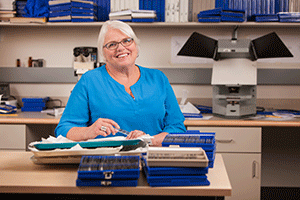
In September, Dr. Robbin Gibb
kicked off the series investigating how a male’s pre-reproduction lifestyle affects his offsprings’ epigenetics, or the expression of their genes. Through rat experiments performed in her lab at the U of L’s Canadian Centre for Behavioural Neuroscience, Robbin is studying the influence of paternal stress and the usage of alcohol and prescription drugs during this time period. She has found that these factors play a role in the epigenetic expression of genes in sperm, development of the embryo, and anxiety and motor skills of their offspring. Her findings so far confirm dads play a much bigger role than we ever imagined in a baby’s brain development and behaviour. She hopes these results compel medical professionals and policymakers to take a more inclusive approach to counselling services and public awareness campaigns geared at aspiring parents.
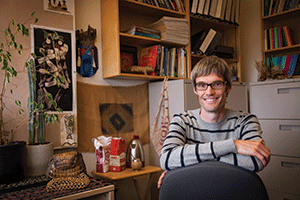
The following month, Dr. Patrick Wilson
brought in focus that a move by the government of Ecuador to preserve the Amazon rainforest and protect the rights of its inhabitants may ultimately do more harm than good. Patrick has been investigating the seemingly progressive constitutional reforms introduced in the South American country in 2008, and their potential impact on indigenous peoples. His interest in the welfare of Amazonian peoples and land dates back to his mid-1990s graduate school research on the subject. Over the last 20 years, Patrick has gained an in-depth understanding of their land rights issues and advocacy efforts, and along the way, has formed close friendships with many of them. When Patrick's research publishes, he hopes it will be useful to human rights and environmental NGOs working in the region, and to the indigenous peoples themselves as a tool for self-advocacy. Patrick says shining a light on these
issues can offer up useful lessons to the international community, since natural resource harvesting worldwide usually affects marginalized populations.
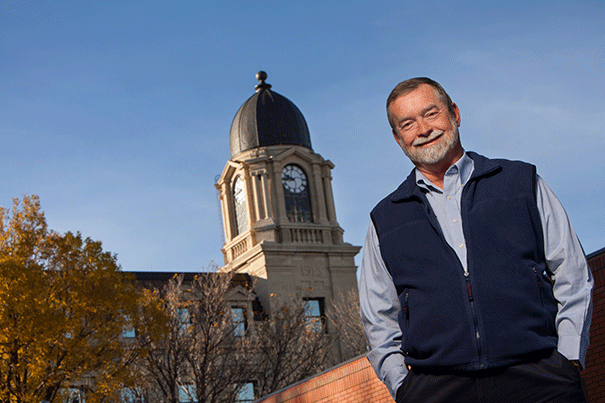 Just before the holidays, Dr. Ian MacLachlan
engaged us in a lively discussion on the past, present and future of Lethbridge’s livestock industry, and the possible effects of current global meat consumption trends on Canada’s economy. Ian has documented the historical evolution of food animal production in Lethbridge from the 1950s onwards. He also studies today’s global geographical shifts in livestock production and consumption, analyzing the implications of rising demand for meat and other types of animal products in developing countries, and the simultaneous declining demand for these products in Canada. He also indicates that as more and more developing countries see their prospects rise, the changing dietary habits of their populations could create lucrative opportunities for Canada’s agricultural sector. But he says it’s important for nations to consider the bigger picture when making
policy and regulatory decisions about their livestock industries. Ian's talk was picked up by CTV and the Western Producer who ran a follow-up story on December 11. Just before the holidays, Dr. Ian MacLachlan
engaged us in a lively discussion on the past, present and future of Lethbridge’s livestock industry, and the possible effects of current global meat consumption trends on Canada’s economy. Ian has documented the historical evolution of food animal production in Lethbridge from the 1950s onwards. He also studies today’s global geographical shifts in livestock production and consumption, analyzing the implications of rising demand for meat and other types of animal products in developing countries, and the simultaneous declining demand for these products in Canada. He also indicates that as more and more developing countries see their prospects rise, the changing dietary habits of their populations could create lucrative opportunities for Canada’s agricultural sector. But he says it’s important for nations to consider the bigger picture when making
policy and regulatory decisions about their livestock industries. Ian's talk was picked up by CTV and the Western Producer who ran a follow-up story on December 11.
To learn more about the PUBlic Professor talks mentioned above, visit After The Talk..
Exploration Expo 2015
Planning has begun for Exploration Expo 2015. We are planning it for on-campus (UHall Atrium) this year for Saturday May 23. Please stay tuned for more information and planning progresses.
Destination Exploration (DE)
-
Destination Exploration had a very successful semester with regards to launching a new club, iScientists, targeted at homeschooled children. The success is continuing with over double the amount of families calling in saying they heard the program was great and wanted to register their children. They were very pleased to include specific Alberta Curriculum learning outcomes so the parents could identify what their children were learning.
-
DE also had a record number of weekend birthday parties; again much of it spreading through positive word of mouth. It is exciting to see children requesting an educational-based party.
-
DE's partner, Actua, announced their exciting news of paring with Google for the launch of the program Codemakers that they will be looking forward to implementing this year.
-
On the horizon is an excitingly busy semester of clubs, birthdays, Play Day, Expo, a SWATCA session, and Reading Week Camp before moving into summer programming.
Notable Mentions
January 12, ’14 | Canadian storyteller Margaret Atwood the featured speaker at 2015 Calgary Alumni & Friends Dinner
Readers around the world know Atwood’s name and rightly associate her with feminism, environmental activism and futurism.

December 4, '14 New FNMI Gathering Place creates environment for campus community to celebrate culture, heritage
The University of Lethbridge officially opened the new temporary location for its First Nations, Métis and Inuit Gathering Place on Thursday, Dec. 4, the first step in the creation of a permanent home for the space.
December 2, '14 U of L to host Winter School on remote sensing of potentially habitable planets
U of L to host conference on recent research into exoplanets.
December 1, ’14 | Interior of future science and academic building begins to take shape
The University of Lethbridge unveiled The Hub as the design choice for the future Science and Academic Building as part of Destination Project.
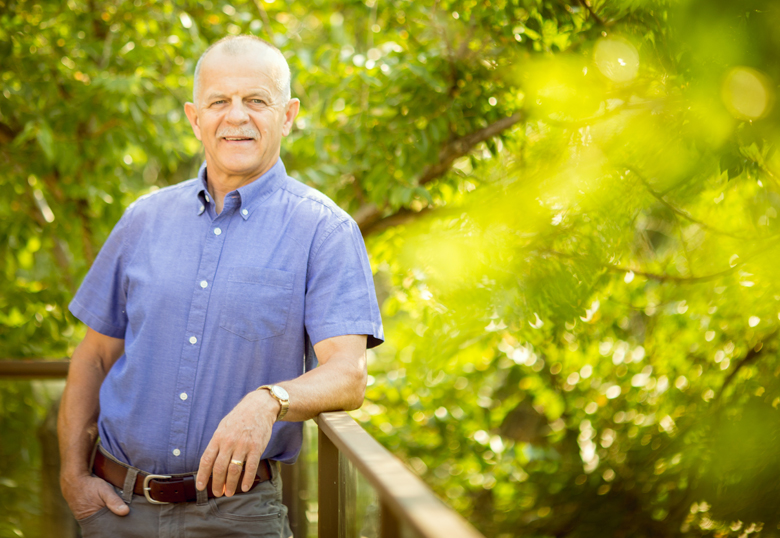 December 1, ’14 | Bomhof committed to helping students succeed December 1, ’14 | Bomhof committed to helping students succeed
Arie Bomhof’s commitment to student success extends beyond the boundaries of the classroom. He’s been contributing to the Supporting Our Students (SOS) fund for years, and his donations are just one more way he can help students succeed.
November 26, ’14 | University unveils design choice for new Science and Academic Building
The new building aims to enhance and support entrepreneurship through the training of students in leading edge teaching and research laboratories.
November 19, ’14 | University of Lethbridge partners with Lethbridge School District No. 51 to present Dual Credit program
A first-of-its-kind partnership between the University of Lethbridge and Lethbridge School District No. 51 promises to create new learner pathways for high school students and better prepare them for the transition to post-secondary studies.
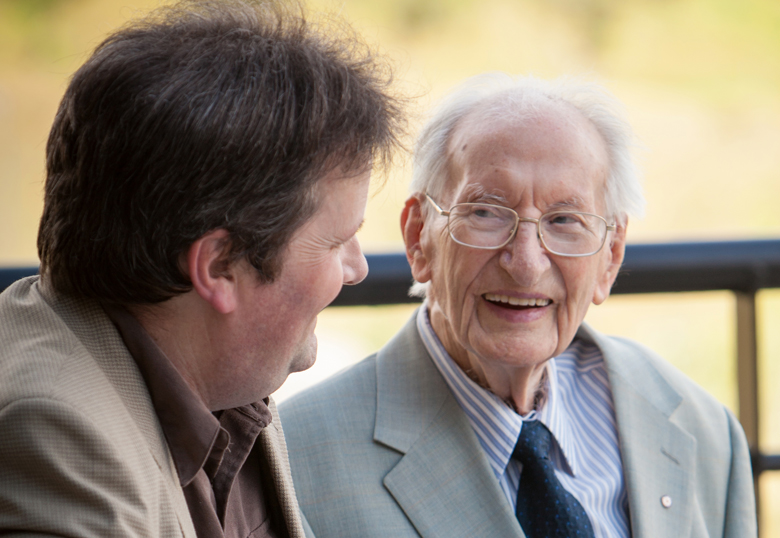
November 7, ’14 | War veteran's family gives to keep lessons of the past alive
A lifelong love of history, coupled with a desire to keep the lessons of the past alive and relevant today, has fueled a generous gift to the University of Lethbridge’s Department of History.
November 7, ’14 | Barbara and John Warren family create new student award
Barbara and her husband, John, established the Warren Family Bhutanese/Nepalese Entrance and Continuing Award to provide one undergraduate student annually with financial assistance.
October 3, ’14 | Auction of the late Dr. Coutts's personal items to benefit Coutts Centre for Western Canadian Heritage
The late Dr. Jim Coutts (LLD ’12) left a legacy to the University of Lethbridge with the establishment of the Coutts Centre for Western Canadian Heritage, and now, that legacy will endure thanks in part to an auction of Coutts’s personal items in support of the Coutts Centre.
September 16, ’14 | University of Lethbridge appoints construction manager for new science and academic building
PCL Construction Management Inc. of Calgary will lead the construction of a new science and academic building at the University of Lethbridge – a key component of the Destination Project.
Go To Top
|
|
|
New Appointments
Start Date: September 1, 2014
-
Jonathon Penny, 9-month term position, Instructor III, Academic Writing
-
Jeff Bleaney, 8-month term position, Instructor II, Math/Cmpt Sc (also a grad student)
-
Alyssa Lumley, 8-month term position, Instructor II, Math/Cmpt Sc (also a grad student)
Start Date: November 1, 2014:
-
Brian Dempsey, Continuing Appointment, Instructor III, Chem/Biochem
Start Date: January 1, 2015:
-
David Logue, Assistant Professor, Tenure-Track, Psychology
-
Tom Arjannikov, 4-month term position, Lecturer, Math/Cmpt Sc
-
Francine Young, 4-month term positions each in Fall 2014 and Spring 2015, Lecturer, Mod Lang
-
Chris Grignard, 4-month term position, Lecturer, NAS (teaching 1 course in NAS and 1 course in Engl)
-
Don Frantz, 4-month term position, Lecturer, NAS (Cree & Blackfoot)
-
Willa Liu, 4-month term position, Lecturer, Sociology
Start Date: July 1, 2015
-
Mickey Vallee (position moved from term to a Tenure Track status), Assistant Professor, Sociology
-
Cindy Ermus, Assistant Professor, Tenure-Track, History
-
Helen Connolly (position moved from term to Continuing Appointment status), Instructor III, Academic Writing
-
Rebekah Eckert (position moved from term to Continuing Appointment status), Instructor III, Academic Writing
-
Caroline Hodes, Assistant Professor, Tenure-Track, Women & Gender Studies
-
Alice Cohen, Assistant Professor, Tenure-Track, Geography. Alice is a Tier II CRC candidate and has not accepted our offer until she hears whether or not her CRC position is approved.
Go To Top
|
|
|
Research Round-up
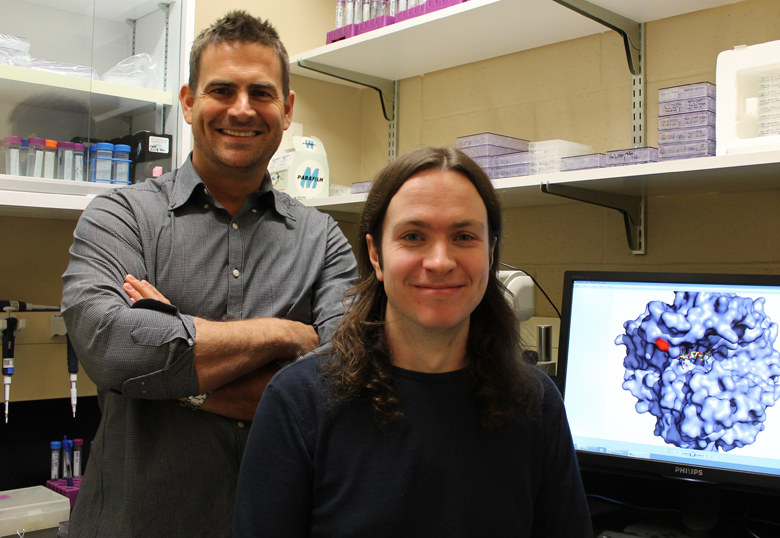
January 8, ‘15 | Beer and bread yeast-eating bacteria could open door to better health in both humans and livestock
Dr. Wade Abbott, and master's student Richard McLean, contributed to the groundbreaking international study.
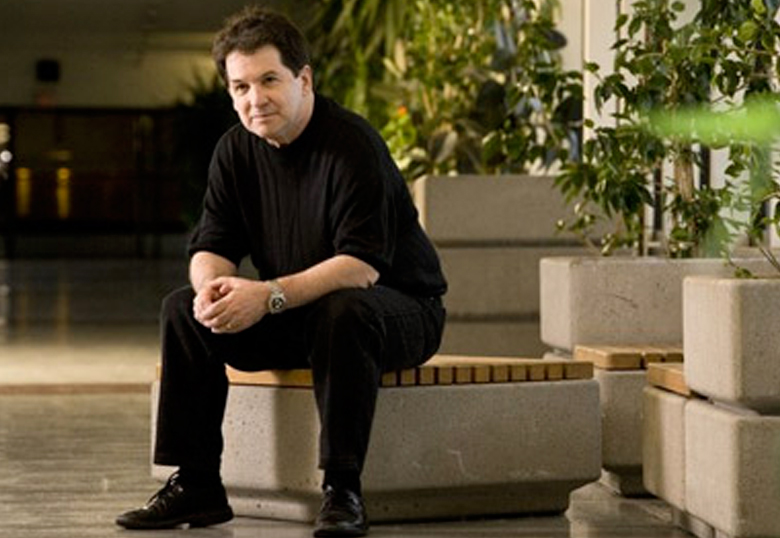
December 24, ’14 | Canadians see Christmas as a national treasure
Research by the U of L's Dr. Reg Bibby and Angus Reid suggests that Canadians experience their greatest levels of happiness around the Christmas season.
December 23, ’14 | Canadians prefer ‘Christmas’ to ‘Holiday Season’ just one finding in Angus Reid/U of L survey
An online survey of more than 1,500 Canadians by the Angus Reid Institute and U of L sociologist Dr. Reginald Bibby shows that eight out of 10 respondents preferred to use the term ‘Christmas'.
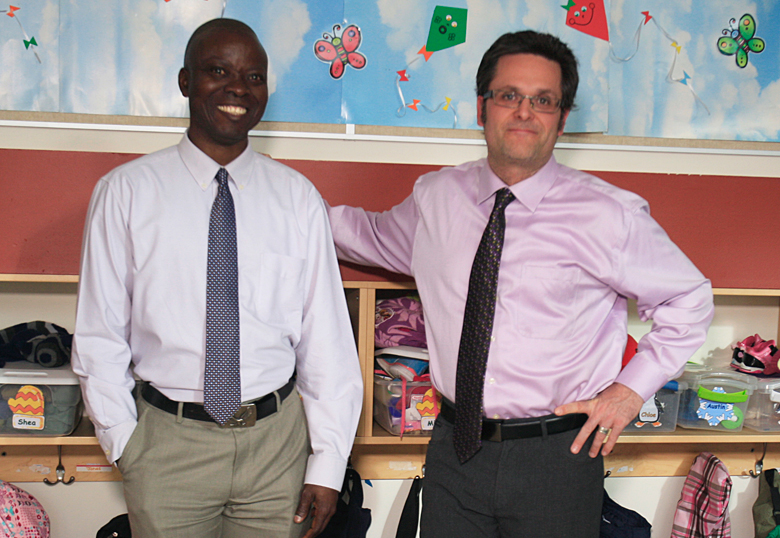
December 17, ’14 | Parkland Institute award creates opportunity to improve health and wellness of rural daycare workers
Drs. Jon Doan and Olu Awosoga are looking to put together an education and exercise package tailored to meet the unique workplace demands of daycare workers.
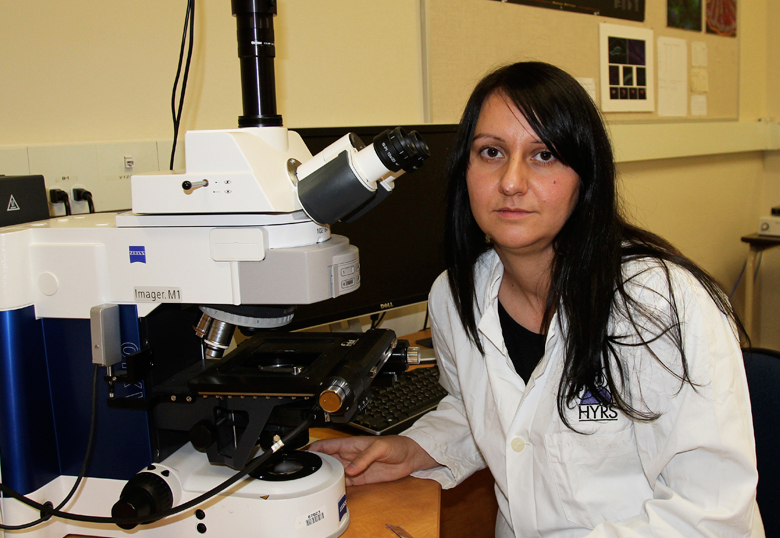
December 17, ’14 | Doctoral student using Parkland Institute award for study to uncover links between prenatal stress and aging
Mirela Ambeskovic is seeking to determine how prenatal stress programs the brain and behaviour across generations.
December 5, ’14 | University of Lethbridge C-CRAFT symposium to showcase power of fluorine and NMR spectroscopy
The first centre of its kind in Canada, the University of Lethbridge’s Canadian Centre for Research in Advanced Fluorine Technologies (C-CRAFT), presented a Symposium Celebrating NMR Spectroscopy and Fluorine Chemistry.
November 26, ’14 | University unveils design choice for new Science and Academic Building
The Hub, a concept that creates a vibrant core in the heart of the building where paths between laboratory blocks and the general campus intersect, was recently approved by the U of L’s Board of Governors from three proposed massing options shared with the community earlier this fall.
November 21, ’14 | Understanding the consequences of the global livestock revolution
As more and more developing countries see their prospects rise, the changing dietary habits of their populations could create lucrative opportunities for Canada’s agricultural sector.
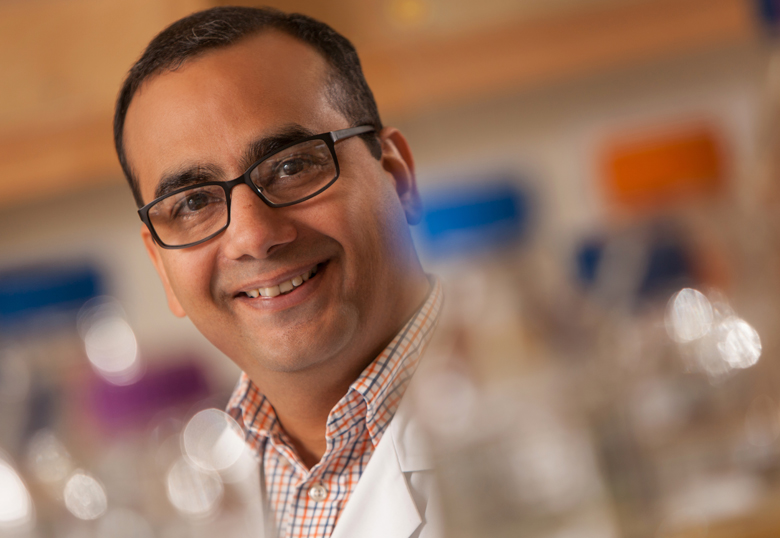
November 17, ’14 | U of L appoints Dr. Nehal Thakor as its fourth CAIP chair
Dr. Thakor, a microbiologist, brings his expertise in synthetic biology to the University of Lethbridge as a Campus Alberta Innovation Program (CAIP) Chair of Synthetic Biology and RNA-based Systems. He was appointed to the seven-year position in September.
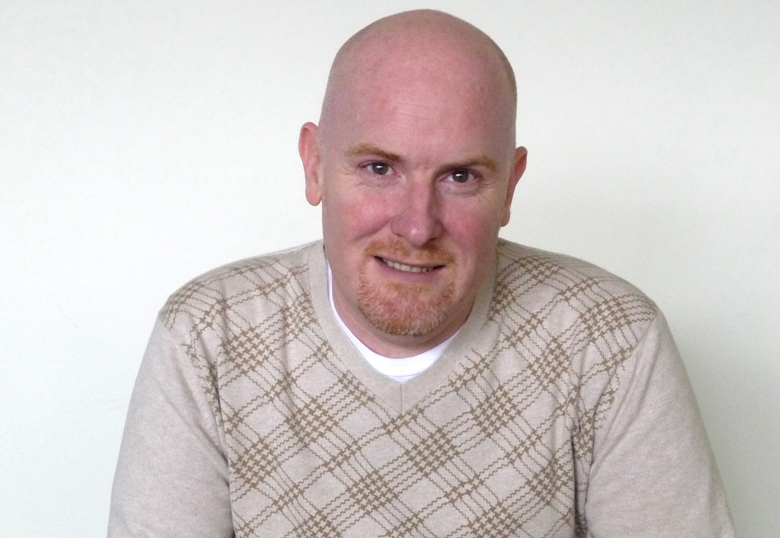
November 10, ’14 | Groundbreaking paper earns Vasey lab prestigious award
A pioneering research paper from Dr. Paul Vasey’s Laboratory of Comparative Sexuality at the University of Lethbridge has been recognized by the Society for the Scientific Study of Sexuality (SSSS) as the winner of the 2013 Ira and Harriet Reiss Theory Award for best theoretical paper in sexology.
October 27, ’14 | The plight of Ecuador’s indigenous peoples
U of L researcher Dr. Patrick Wilson reveals potential risks of the South American country’s seemingly pro-Amazon constitutional reforms.

October 16, ’14 | Iwaniuk named a Tier II Canada Research Chair
Leading neuroscientist Dr. Andrew Iwaniuk, one of the University of Lethbridge’s emerging young researchers, has been awarded a Tier II Canada Research Chair for a research program aiming to understand how the brain evolves into different sizes and forms in different species.
September 23, ’14 | Dads' impact on kids' development deeper than we think
Dr. Robbin Gibb studies what happens to a father’s offspring when he is exposed to chronic stress right before they are conceived.
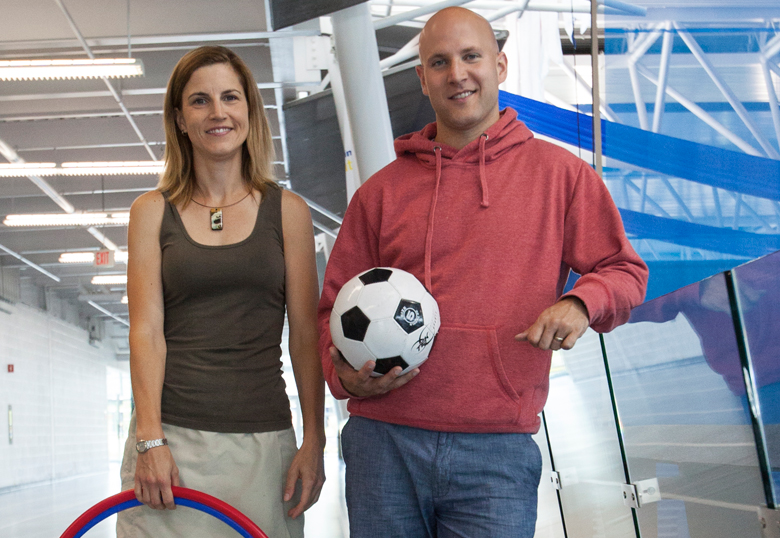
September 10, ’14 | University of Lethbridge researchers engaging children as part of national physical literacy assessment
Two University of Lethbridge kinesiology researchers will be assessing the physical literacy of 1,300 local children over the next two years as part of the Canadian Assessment of Physical Literacy (CAPL). Drs. Jennifer Copeland and Luc Martin are co-investigators in the CAPL study for the Lethbridge area.
Go To Top
|
|
|
Research Centres and Institutes
 |
|
| |
Update from the Centre for Oral History and Tradition
This past semester has been an exciting one for the Centre for Oral History and Tradition (COHT). The centre was able to hire long time student assistant Karissa Patton (History) through a University of Lethbridge SSHRC Student Training Grant. Joslin Smith (Sociology) has also been working as a student assistant with the COHT and will continue her work with the Centre this spring. The COHT has also received funding for an Oral History Project in celebration of the University’s 50th anniversary in 2017.
The COHT also hosted their first Roundtable with visiting scholar Nancy Janovicek in October 2014. The centre also held their first Oral History Workshop in partnership with the Galt Museum & Archives in November 2014. The workshop drew in sixteen participants from many southern Albertan communities and organizations.
The COHT is looking forward to their many spring 2015 events including Claudia Malacrida’s (Sociology) book launch on February 12th at 7:00pm in the Penny Building downtown, and guest speaker Brian Calliou on March 5th from 3-5pm. You can watch for more details about the COHT events on our upcoming 2015 Speaker Series poster on campus.
Go To Top
|
|
|
Special Mentions
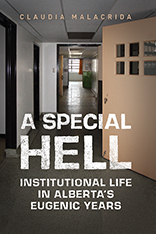
Jan '15 | Malacrida publishes new book
A Special Hell: Institutional Life in Alberta’s Eugenic Years
University of Toronto Press
This book draws on archival documents and oral histories of survivors of Provincial Training School/Michener Centre, a total institution for ‘mental defectives’ that opened in Red Deer, Alberta, Canada in 1923 and that continues to operate to the present.
Book launch to be held February 26, 2015 at 7pm, Penny Building.
Heidi MacDonald named new chair of the editorial board of the Canadian Historical Review, starting in July 2015. Founded in 1920 and currently publishing quarterly, the Canadian Historical Review is considered Canada's most prominent, historical peer-reviewed journal.
The American Anthropological Association and Oxford University Press are pleased to announce the recipient of the 2014 AAA/Oxford Teaching Award for Excellence in Under-graduate Teaching of Anthropology Dr. Jan Newberry.
Dr. Abdi Kazemipur named University Scholar.
“The University Scholar program helps talented faculty members more actively pursue their respective research areas by granting them fi-nancial resources as well as time to further explore their interests,” says Associate Vice-President (Research) Lesley Brown.
Dr. Kazemipur is an outstanding scholar whose work focuses on understanding the role religion and sociopolitical development play within Muslim populations. He will continue this work by investigating the integration of Muslim populations into western liberal-democracies. He will also be looking at the secularization and inter-play of Islam and democra-cy in the Middle-Eastern countries of Iran, Turkey and Egypt. As he continues with his project, Dr. Kazemipur hopes to add a Canadian voice and perspective to this timely topic.
Jim Byrne & Leanne Little
Prentice Institute Research Affiliate Jim Byrne and Leanne Little, Prentice Editorial Assistant Join the Largest Attended Earth Space Science AGU Fall Meeting in California. AGU’s (American Geophysical Union) Fall Meeting in San Francisco, with nearly 24,000 attendees, is the largest earth and space science meeting in the world. This year’s conference, December 15-19, saw Professor Jim Byrne, Geography and Prentice Institute Research Affiliate and Leanne Little, BA, B.Ed. and Prentice Institute Editorial Assistant, participating along with four of Dr. Byrne’s students.
Go To Top
|
|
|
Focus on Faculty - 2014 in Review
William Ramp
Online journalism: a series on the ecological and human history of the Great Plains.
Academic journal articles:
And an article was in a journal's "most read" ranking for December 2014: Introduction: Durkheim Redux
Susan McDaniel
Selected Academic and Professional Honours and Awards (including Research awards):
-
Selected as among Alberta’s 50 Most Influential People, 2014, Alberta Venture Magazine, July.
-
Plenary speaker, World Congress of Sociology, Yokohama, Japan, July 2014, “Duel of the Dualisms: Production and Reproduction Reconfiguring”
Selected Grants:
-
Co-Investigator, “Gender, Migration and the Work of Care: Comparative Perspectives,” SSHRC Partnership Grant, Ito Peng, University of Toronto, Principal Investigator, 1 June 2013-2018
-
Canada Research Chair (Tier 1) in Global Population and Life Course, CRC Programme, 2011 – 2018
Selected Articles in Refereed Journals:
Invited Addresses: (Conference papers are listed separately below)
-
“The Duel of the Dualisms: Production and Reproduction Reconfiguring,” Invited Plenary Speaker, ISA World Congress of Sociology, Yokohama, Japan, 14-19 July 2014.
-
“Global Ageing in Precarious Times,” Invited Presidential Symposium speaker, RC 11 on Ageing and the Life Course, ISA World Congress of Sociology, Yokohama, Japan, 14-19 July 2014.
Abdie Kazemipur
Awards, Appointments, Grants:
-
December 2012-July 2014 | Founder and Academic Director, Memorial University/Statistics-Canada’s Research Data Centre
Published Books
-
Kazemipur, A. (2014). The Muslim Question in Canada: A Story of Segmented Integration. Vancouver: University of British Columbia Press.
Articles and Book Chapters
-
Kazemipur, A. (2014-under-review), “Muslim Immigration to North America: The Rise of New Challenges and the Need for New Perspectives”, in Victoria Esses & Don Abelson (Eds), Taking Stock of a Turbulent Decade, and Looking Ahead: Immigration to North America 2000-2010, MQUP Press.
Presentations at Professional Meetings
-
Kazemipur, A. (2014). “On the Integration of Canadian Muslims: Bringing the Social Back in”, presented at presentation at the American Academy of Religion Annual Meeting, San Diego, CA, November 22-25.
-
Kazemipur, A. (2014). Beyond Inter-faith dialogues and fiqh-al-aqalliyyat: A Sociological Account of the Lives of Muslims in Canada. Invited presentation at the Department of Religious Studies, University of Toronto, November 10. (invited talk)
-
Kazemipur, A. (2014), “The Muslim Exceptionalism: The Myth and the Reality”, 2014 Annual OWN IT conference: Integration of Civilizations Preventing Criminal Radicalization through Youth Empowerment, University of Calgary, September 12. (keynote speaker)
Wei Xu
Selected Book Chapters
-
Tang, Q. and Xu, Wei (2014) Determinants of spatial variation in residential housing price in Shanghai: A spatial analysis using geographically weighted regression, in Dai, Erbiao Ed. The International Centre for the Study of East Asian Development (forthcoming)
-
Yu, Li, Xu, Wei, Zhu, Yu, Lin, Liyue (2014) Escaping the neon glamour? Potential return migration of rural migrants in China, in Bonifacio, Glenda (ed) Gender and Rural Migration, pp. 83-118. New York, Routledge.
Alexander Darku
Journal Articles:
-
Income Inequalities and Savings in Canada. To be published in a special issue of “Canadian Studies in Population” on the theme of Global Population and Economy, (forthcoming).
-
Sources and measurement of Agricultural Productivity in Canada: Crops and Livestocks (Joint with Stavroula Malla and Kien Tran). Submitted to “Canadian Journal of Agricultural Economics”(forthcoming).
-
Analyzing Sub-Saharan African Trade Patterns in the Presence of Regional Trade Agreements (Joint with Adriana Appau). Submitted to “The African Finance Journal” (forthcoming).
To submit information about your research work, publications, etc for the next newsletter, please contact artsci.communication@uleth.ca.
|
|
|
Awards and Medals - Apply Today
Volunteer Award Nominations now open
The University of Lethbridge Volunteer Award recognizes people who have volunteered to serve the University. It is open to any individual or group whose volunteer contributions, past or present, have benefited the University of Lethbridge.
This award is sponsored by the University of Lethbridge Senate, and the recipient receives the award at the Chancellor's Dinner.
The deadline for nominations is Feb 1, 2015.
Please visit the website for nomination forms or more information.
Distinguished Teaching Award 2015 – Nominations Open
To all members of the University of Lethbridge community (students, faculty, alumni and staff): nominate your favourite professor.
The Distinguished Teaching Award was established in 1987 at the University of Lethbridge under the auspices of the President. This award is in recognition of the central importance of teaching to the philosophy and goals of the University of Lethbridge and to provide recognition to those members of the academic staff who excel in teaching.
The deadline for nominations for this award is: Feb 1, 2015.
For nomination forms, guidelines and past recipients can be found on the University of Lethbridge website.
Speaker Research Medal
To all members of the University of Lethbridge community (students, faculty, alumni and staff): nominate your favourite researcher.
The Speaker Research Medal for Distinguished Research, Scholarship, or Performance was established at The University of Lethbridge in December, 1994 by Chancellor Ingrid Speaker under the auspices of the President. The medal is in recognition of the central importance of research, scholarship and performance to the philosophy and goals of the University of Lethbridge and to provide recognition to those members of the academic staff who excel in these areas.
Deadline for nominations for this award is: February 27, 2015. Nomination forms along with additional information can be found on the University of Lethbridge website.
Go To Top
|
|
|
Spotlight on Conferences and Events
|
 |
| |
Call for papers: Controlling Sexuality and Reproduction 2015 Conference
This upcoming conference, Controlling Sexuality and Reproduction, will be held August 12-14, 2015 at the University of Lethbridge. The conference will explore and challenge historical and current efforts to control certain kinds of sex and reproduction, and will examine what kinds of ‘normal’ values are being upheld.
Conference Themes include:
-
Law, Ethics and Sexual/Reproductive Control
-
Medicine and Sexual/Reproductive Control
-
Social Services and Sexual/Reproductive Control
-
Representation and Controlling Sexuality
250 word abstracts for single papers or individual presentations, and 500 words for panels should be submitted by midnight, Feb 15, 2015.
For more information or to submit an abstract, please visit the conference website.
Call for Presentations and Peer-Reviewers
GSA’s 9th Annual Meeting of the Minds Conference. Mar 20-22, 2015.
Call for presentations.
Deadline: February 13 at 11:59PM.
We encourage students from ALL disciplines and ALL levels of study (undergraduate, graduate, and post-doc) to present their work.
Call for Volunteers for Peer-Review Process.
Email: conference@ulgsa.ca with your name, department, and position (grad student/post-doc/faculty).
For more information about the schedule of events, how to submit an abstract or what is required of volunteers, please visit: http://www.ulgsa.ca/meeting-of-the-minds-conference.
For up to the minute details and updates, please follow us on Twitter or Facebook.
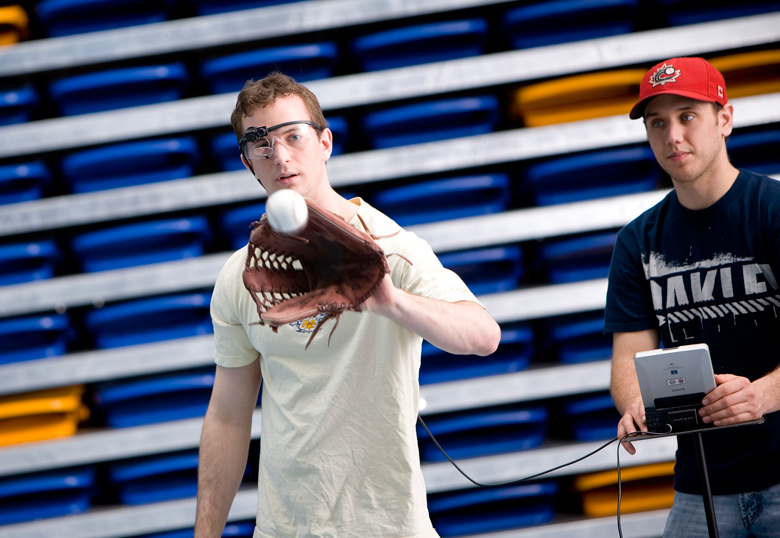
Community University Research Exchange (CURE)
CURE is an initiative with that aims to connect researchers at the University of Lethbridge with community members interested in research endeavours. CURE helps ensure that the world-class research that is conducted at the University of Lethbridge has an opportunity to be utilized by community organizations, government bodies, non-governmental organizations, industry and the general public. The University of Lethbridge is committed to using new knowledge and discoveries to improve the life of Canadians and advance our scientific footprint.
On March 20, 2015, the University of Lethbridge will host the third annual CURE event. Faculty members and students are encouraged to attend to describe projects involving external partners and to learn about others who involve the external community in their research. Community members interested in participating as partners in research or learning about what types of research are ongoing at the university are encouraged to attend. We hope to connect University researchers with community partners as a result of this initiative.
For more information, visit the website or contact Penny D'Agnone at penny.dagnone@uleth.ca or 403-382-7198.
Go To Top
|
|
|
Students | What are They Up To?
|
 |
| |
This just in...
Agribusiness Case Competition winners (see uNews, April 16, '14 for original story) are heading back to Guelph, ON in mid March to take another run at the win. Hosted by the College of Management and Economics at the University of Guelph, he case will focus on the topic of agribusiness and sustainability and the practical application of corporate responsibility and sustainable solutions to long term agricultural planning.
In addition, Phyllis MacCallum and Monica Gorham are co-chairing the development of The University of Lethbridge Agribusiness Case Competition which is tentatively scheduled for Nov. 6-8th 2015. The competition will be hosted by both the Faculty of Arts and Science and the Faculty of Management and will be open to students from both the University of Lethbridge and Lethbridge College as a joint initiative to expand agribusiness education in Southern Alberta. This is in the planning stages at the moment but watch this space for more concrete information as the semester progresses.
January 8, '15 | Journey to academic success doesn't always follow same path
Five years after dropping out, Richard McLean is back at the U of L breaking ground as a published master's student
December 16, ’14 | Revealing essay earns Eelhart the Michael Chan Prize in Asian Studies
Aaron Eelhart, a third-year general sciences student, creates an award-winning photo essay detailing his tour of China experience.
December 5, ’14 | Programmers earn third-place finish at regional contest
A third-place finish led the way for a quartet of University of Lethbridge student teams that participated in the Rocky Mountain Regional Contest of the 2014 ACM International Collegiate Programming Contest recently.
November 14, ’14 | U of L iGEM team earns gold in Boston competition
On the strength of a project that may one day lead to a new cell therapy to repair damaged neurons in the brain, the University of Lethbridge iGEM (international genetically engineered machine) team was awarded a gold medal at the iGEM Giant Jamboree 2014 in Boston from Oct. 30 to Nov. 3.
September 18, ’14 | Nepal experience affirms U of L student's desire to do international development work
Political science student Brandon McNally conducted an independent research project on the Navadurga religious traditions in Tantric Hinduism.
September 18, ’14 | President's Grant for International Community Engagement spurs student work overseas
The President’s Grant was awarded to three outstanding student applicants in its first year, impacting communities in Uganda, Nepal and Burkina Faso.
Go To Top
|
|
|
Alumni Success
October 20, ’14 | Alumnus of the Year Johnson followed his passion
Lawrence Johnson credits the U of L with helping him become a broad-range thinker with the ability to delve into different fields.
October 6, ’14 | Pride inspires alumna's donor spirit
Shabana Manji feels that giving back to the U of L is something all alumni should consider, not only to benefit future generations of students, but also for the betterment of the U of L as a whole.
October 6, ’14 | How can yoga help students deal with stress?
Kevan Bryant (BA/BEd '12) says her passion for research comes from a love of learning and being curious about how people can live their best, most healthy and most meaningful lives.
September 9, ’14 | Alumnus Mardon named to Royal Society of Canada
University of Lethbridge alumnus and 2014 honorary degree recipient Dr. Austin Mardon (BA '85) has been named a Fellow to the Royal Society of Canada.
Go To Top
|
|
|
Calendar
Upcoming Events
IRDF Presentation – Language Development, Identity and Assessment Group
Thursday, January 15, 2015
3:15-5:15pm
L1060 (classroom outside of Library), University of Lethbridge
-
Drs. Nicole Rosen, Claudia Gonzalez, Inge Genee, Robbin Gibb, Fangfang Li and Noella Piquette
-
Overarching question: What does it take to become a sophisticated language user?
Presentation – Military Relevant Trauma Brain Injury Research Challenges and Opportunities
Tuesday, January 20, 2015
11:00am – 12:00pm
EP1201
The Campus Alberta Neuroscience Academic Exchange Program and Dr. Gerlinde Metz presents: "Military Relevant Traumatic Brain Injury Research – Challenges and Opportunities"
By Dr. Ibolja Cernak, MD, PhD, ME, MHS, Professor & Chair
Canadian Military and Veterans' Clinical Rehabilitation
Faculty of Rehabilitation Medicine
University of Alberta
Edmonton, AB
ARRTI Speaker Series
Dr. Lawrence Kawchuk
Wednesday, January 21, 2015
3:00-3:50pm
C674 (University Hall)
Topic: “Evolution and Lifestyle of RNA Viruses”
Dr. Oliver Lung
Monday, February 9, 2015
3:00-3:50pm
C674 (University Hall)
Topic: Rapid Detection and Typing of Viruses”
Dr. Brian Dempsey
Wednesday, March 11, 2015
3:00-3:50pm
C674 (University Hall)
Topic: “The S100 protein family: Calcium signals that control formulation of protein complexes”
Physics & Astronomy Colloquium Speaker Series
Hoimonti Rozario – PhD Candidate, Comprehensive Exam Talk
Thursday, January 22, 2015
1:40-2:55pm, C640 (University Hall)
The Department of Physics & Astronomy is pleased to present our first speaker on Thursday, January 22, 2015 at 1:40 pm in C640. Hoimonti Rozaria, MSc candidate, will present her talk entitled "Laboratory Studies for Plenetary Remote Sensing Application."
Number Theory and Combinatorics Seminar Series
Mondays
12:00-12:50pm
W565
Open sessions, everyone welcome. Find out more, visit Math & Computerscience.
PUBlic Professor Series Dates

Thursday, January 22, 2015
David Naylor
Topic: Why Invest in Space Exploration?
Talk details pending.
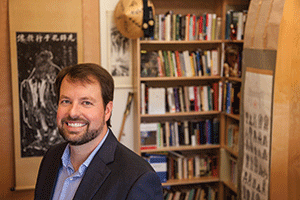
Thursday, February 26, 2015
John Harding
Topic: Buddha’s World Tour: Global Buddhism in the Modern Era
Talk Details: Buddhism has changed significantly in Asia in the last 150 years and has also become popular worldwide. Multiple perspectives are required to understand the ethos that shaped modern representations of Buddhism in the past and the present. Insight into the processes through which Buddhism spread globally requires close attention to the relationships among key individuals, organizations, and their cultures.
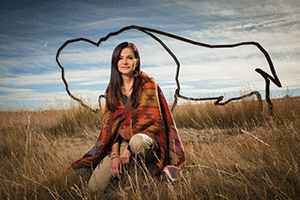
Thursday, March 19, 2015
Michelle Hogue
Topic: Two-Eyed Seeing: A Different Vision for Teaching Aboriginal Learners Science and Mathematics
Talk Details: What if we put the textbook down for a while, got off our butts and approached teaching in a different way? What if we “do it first” and “talk about it later”? This talk explores unique, creative methodological approaches to teaching FN students science and mathematics; methodologies that work as well for 21st Century Learners.
Location for all events:
U of L Dr. Foster James Penny Building
324 5 Street S, Lethbridge
Everyone is welcome, and there is no need to RSVP. Appetizers (LA Chefs) and a host bar will be available.
Getting to Know You, Getting to Know All About You Issues in Getting to Know Ourselves and Others
Mondays at the Lethbridge Public Library
7:30-9:00pm
January 19, 2015
Topic: How Do I Know What I Think About You, or About Me? The Challenges of Self-knowledge
Scott Allen, Dept. of Psychology, University of Lethbridge
February 2, 2015
Topic: Is This About Ramses II, Or Is It Really About Me? The Challenges of Studying Others through Archaeology
Kevin McGeough, Dept. of Geography, University of Lethbridge
February 9, 2015
Topic: But Are You and I Really Any Different? The Challenges of Globalization and Cultural Diversity
Andrea Amelinckx, Faculty of Management, University of Lethbridge
PIMS Distinguished Visitor
Dr. Fairouz Kamareddine
Professor Kamareddine's academic career is at the interface of Mathematics, Logic and Computer Science where she has been involved in a number of worldwide consultancy assignments at various levels of institutions ranging from universities to the United Nations. She gained her PhD in Informatics from the University of Edinburgh in 1989. She has held academic and research positions in the Netherlands, France, and the UK as well as numerous visiting invitations to Japan and the USA.
Monday, February 2, 2015 and Thursday, February 5, 2015
Title: Types and Functions since Principia and computerisation of Language and mathematics.
Monday, Feb 2 – 12:00 to 12:50 pm in C640
Historically functions have been treated as a kind of meta-object. This all changed with the work of Frege, Russell and Church. Furthermore, the challenges of the paradoxes led to the formalisation of type theory by Russell. Since, functions and types have gone through a long process of evolution through various degrees of abstraction, construction and evaluation making both functions and types first class citizens as far away from meta-level as possible. In this talk, I argue that desirable properties of the historic lower order approach (decidability, easiness of calculations) can be maintained without losing the flexibility of the higher-order aspects. I argue that the low level approach is still worthwhile for many exact disciplines.
Title: Computerising Mathematical texts with MathLang
Thursday, Feb 5 – 12:15 to 1:30 pm in B730
Abstract: Mathematical texts can be computerised in many ways. At one end there is document imaging, at the other there are proof assistants (Mizar, Isabelle, Coq, etc.).In between, there are typesetting (e.g., LaTeX and MathML) and semantically oriented (e.g., OpenMath and OMDoc) systems. MathLang is an approach for computerising mathematical texts which is flexible enough to connect the different approaches to computerisation, allowing various degrees of formalisation and compatibility with different logical frameworks (set/category/type theory) and proof systems.
MathLang adds, checks, and displays various information aspects on mathematical texts. One aspect is a weak type system that assigns categories (term, statement, noun, adjective, etc.) to parts of the text, and checks that grammatical sense is maintained. Another aspect allows identifying chunks of text, marking their roles (theorem, definition, explanation, example, section, etc.), and indicating relationships between the chunks (A contradicts B, A follows from B, etc.). Further aspects allow additional formality such as proof structure and details of how a human-readable proof is encoded into a fully formalised version of Mizar/Isabelle/Coq. In this talk we survey the status of the MathLang project.
Fathers and Daughters in Chinese Buddhism
Thursday, February 5, 2015
4:30-6:00pm
C610 (University Hall)
Guest Speaker: Professor Wendi L. Adamek (Numata Chair in Buddhist Studies and Faculty Member at University of Calgary)
Light refreshments will be provided
Engineering Information Evening
The Faculty of Arts & Science invites prospective students to meet with faculty members and instructors, as well as local members of the engineering community.
Tuesday February 24 2015
6:30 - 8 p.m.
1st Choice Savings Building, room PE 261
Light refreshments will be provided. Register today.
Book Launch
Thursday, February 26, 2015 - 7:00pm - 9:00pm
Event Location: Dr. Foster James Penny Building
A Special Hell: Institutional Life in Alberta's Eugenic Years
by Claudia Malacrida
University of Toronto Press, Scholarly Publishing Division © 2015
World Rights
Brain Awareness Week – Public Lecture by Dr. Robbin Gibb
Tuesday, March 10, 2015
7:00pm
Yates Memorial Centre, 1002 – 4th Ave. S, Lethbridge, AB
Presented by: Dr. Robbin Gibb, Professor of Neuroscience, University of Lethbridge
CCBN Open House
Saturday, March 14, 2015
10:00am-1:00pm
Canadian Centre for Behavioural Neuroscience
University of Lethbridge, 4401 University Drive West, Lethbridge, AB
Go To Top
|
|
|
|
|
|